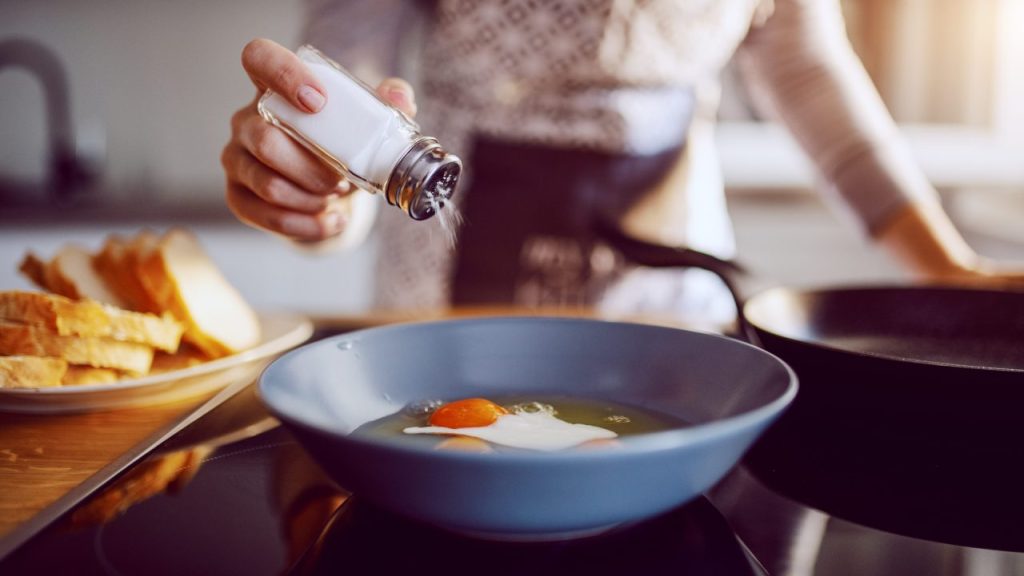Salt substitution linked with lower risk for dying early, study finds
The study's authors also discovered a link between salt substitution and a reduction in sodium in urine and blood pressure.
Cooking with a salt substitute might lead to blander food, but it could lower the risk of premature death and cardiovascular disease.
Those are the findings of a new systematic analysis that was published Monday in the Annals of Internal Medicine, according to CNN. Researchers examined 16 controlled trials with 35,251 people with an average age of about 64 and an above-average risk of cardiovascular disease. The trials compared common salt — about 100% sodium chloride with iodine added occasionally — and a salt substitute made of 25% to 30% potassium chloride and 60% to 75% sodium chloride.
“We are excited to be able to provide evidence that salt substitutions are effective for improving cardiovascular outcomes when used long-term, up to 10 years,” said Dr. Loai Albarqouni, the study’s senior author and an assistant professor at the Institute for Evidence-Based Healthcare at Bond University in Australia. “Previous synthesis tended to focus on short-term outcomes, lasting only two weeks.”

The authors also discovered a link between salt substitution and a reduction in sodium in urine and lowered blood pressure — an impact comparable to that of blood pressure drugs, which Albarqouni said may account for the decreased mortality risk. Most of the trials examined took place in China; the remainder were in the Netherlands, Norway, Taiwan, Peru, and the United Kingdom.
Albarqouni said diets that are heavy on packaged or restaurant food likely include too much sodium. Bloating, swelling, fatigue, elevated blood pressure and increased thirst and/or urination are symptoms that might signal you’re consuming too much sodium.
Recommended Stories
The American Heart Association recommends a daily salt restriction of 1,500 milligrams and not exceeding 2,300 mg for most adults, especially those with high blood pressure.
Experts advise individuals to try salt replacements that are similar to the substitutes used in the study. In addition to eliminating or reducing salt in home cooking, you can use salt-free spices to add more flavor to food.
The authors said further research is required to determine whether salt substitution is safe for patients who are “sensitive to micronutrient manipulation,” particularly those who are sensitive to potassium.
“This is not the strongest study to base a lot of conclusions on at this point,” said Dr. Andrew Freeman, director of cardiovascular prevention and wellness at National Jewish Health in Denver. “But it adds to the body of evidence and the signal in the noise that getting rid of sodium salt in your diet is a big plus and getting potassium in your diet is better.”
While Freeman wasn’t involved in the study, he told CNN that “the best way to get potassium in your body is to eat fruits and vegetables — that’s where potassium is most plentiful.”
More About:Lifestyle

















